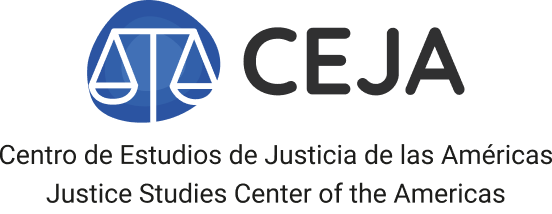The initiative offers an opportunity to analyze six areas with high levels of legal conflict, such as housing and land, consumer affairs, healthcare, finances, domestic relationships and community life.
As a way of examining the development of conflicts, the risk level of the population and barriers to access to justice in the region, and in order to contribute data and statistics that facilitate the analysis of key issues for citizens, the Justice Studies Center of the Americas offers the first Observatory on Civil Conflict and Access to Justice (OCCA) as a resource available to the community.
JSCA leads this pioneering initiative, which is designed to serve as a technical agency for promoting reforms and justice modernization across the continent. As the observatory’s regional center, it also seeks to contribute to transparency, discussion and decision-making in six key areas of civil conflict, namely housing and land, consumer affairs, healthcare, finances, domestic relationships and community life.
The observatory, which was created in 2017, serves as a mechanism for monitoring civil disputes and the various obstacles that people face when they seek to resolve them. Special emphasis is placed on at-risk groups in Latin America. The effort benefits from the participation of civil and academic organizations from eight countries in the region whose work is systematized by the technical team at the regional entity, JSCA. That work is led by Research and Projects Director, Spanish attorney Marco Fandiño, and is coordinated by Mexican researcher Alejandra Bocardo.
Role and objectives
During its initial stage, OCCA has focused on access to justice in Argentina, Brazil, Chile, Colombia, El Salvador, Mexico, Nicaragua and Paraguay. It has published reports on housing and land, consumer affairs and domestic relationships (see link).
Fandiño states that the observatory’s objectives include, “producing simple, strategic data with a high social impact on civil conflict and access to justice in Latin America, in addition to socializing issues of access to justice and civil conflict and raising awareness about the need for reform.”
The OCCA centralized regional observatory proposes data gathering methodologies, systematizes the data provided by local observatories, generates thematic reports, coordinates the publication of the findings and oversees the dissemination strategy.
Its local observatories are responsible for gathering data on conflicts in the aforementioned areas and identifying barriers to access to justice. They also propose methodologies and topics for the OCCA regional agenda.
The observatory partners are the Civil Association for Equality and Justice (Argentina), Pontificia Universidad Católica de São Paulo (Brazil), Universidad Alberto Hurtado (Chile), Universidad de Francisco de Paula Santander (Colombia), the Foundation for Research for the Application of Law (El Salvador), the Universidad Autónoma de México University Human Rights Program, Universidad Politécnica (Nicaragua) and the Center for Judicial Studies (Paraguay).
Visit OCCA online at: occa.cejamericas.org (in spanish)
Download OCCA reports at: occa.cejamericas.org/reportes (in spanish)
